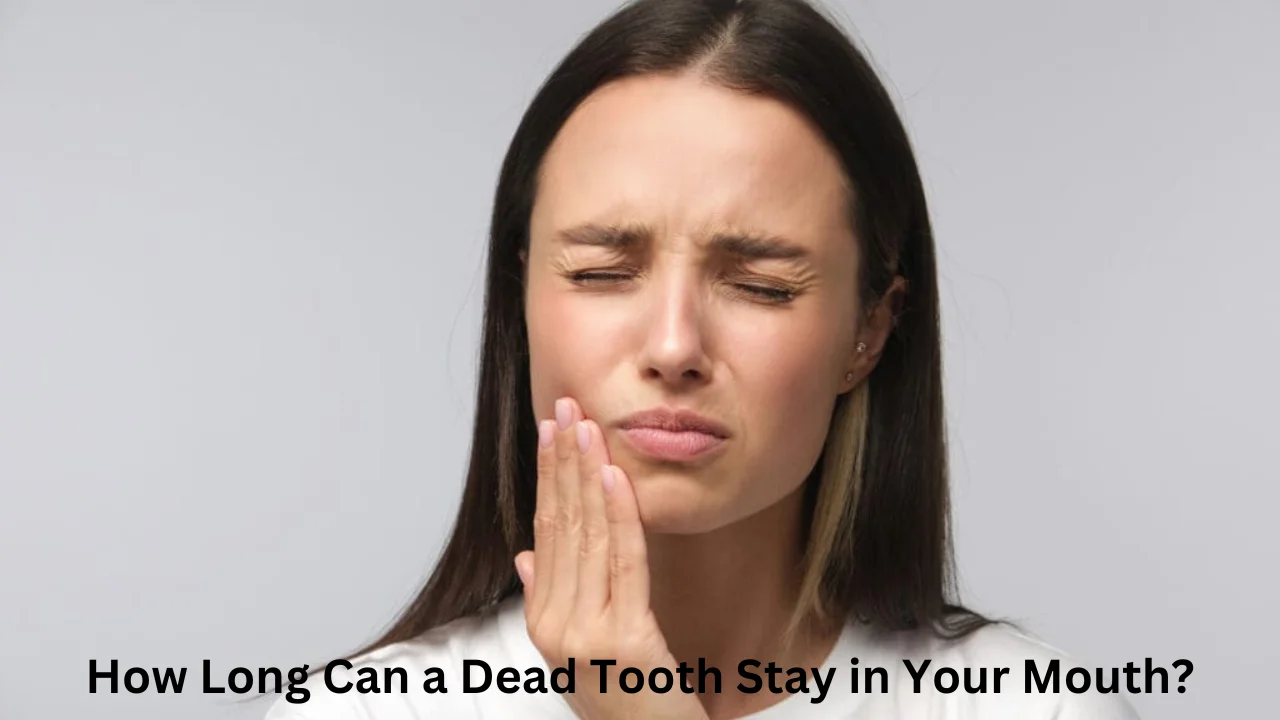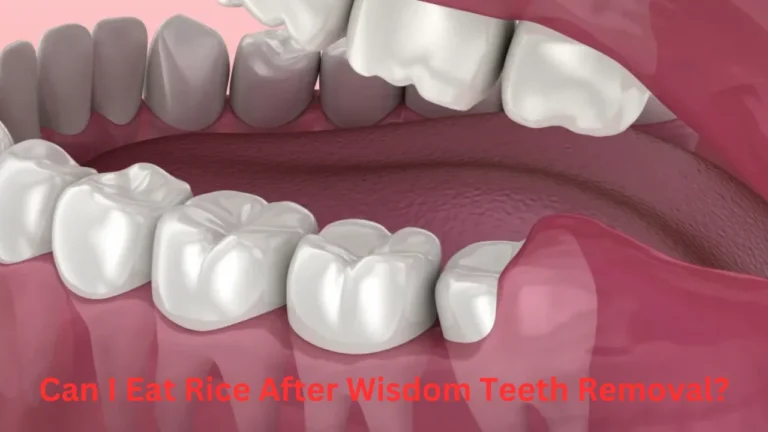How Long Can a Dead Tooth Stay in Your Mouth?

A dead tooth, also known as a non-vital tooth, is a condition where the tooth no longer receives blood flow. Teeth are living structures, and the pulp inside is responsible for their vitality. When blood supply to the pulp is disrupted due to decay, infection, or trauma, the tooth starts to die. While it might not cause immediate pain or complications, leaving a dead tooth untreated can result in severe oral health problems. This raises the important question: how long can a dead tooth stay in your mouth? Understanding the risks and necessary treatments is crucial for maintaining a healthy smile.
What Causes a Tooth to Die?
The two most common causes of a dead tooth are tooth decay and physical trauma. Severe cavities or untreated infections can spread to the pulp, causing irreversible damage. Physical trauma, such as a sports injury or accident, can harm the blood vessels in the tooth, cutting off its blood supply. In either case, the tooth may discolor, become painful, or even appear normal initially. However, the damage continues internally, raising concerns about how long can a dead tooth stay in your mouth before it leads to more severe complications.
Symptoms of a Dead Tooth
A dead tooth often discolors and becomes yellow, gray, or black. This discoloration occurs because the pulp is dying or has died completely. While discoloration is a visible sign, other symptoms may include chronic bad breath, a foul taste in the mouth, or gum swelling near the affected tooth. Pain is also common as the nerve endings around the tooth’s root may become irritated. Many wonder how long can a dead tooth stay in your mouth, especially when symptoms like pain are absent, but undetected problems can worsen over time, making regular dental check-ups essential.
Read Also: Lorice Washington Net Worth, Early Life, Education and career
How Long Can a Dead Tooth Stay in Your Mouth?
The duration that a dead tooth can remain in the mouth depends on various factors, including the severity of the infection, the individual’s oral hygiene, and whether there are underlying dental conditions. In some cases, a dead tooth can stay in the mouth for months or even years. However, this does not mean it is safe to leave it untreated. How long can a dead tooth stay in your mouth without causing complications varies, but the longer it remains, the greater the risk of infection spreading to surrounding teeth and gums.
If a dead tooth is not removed or treated, it can lead to severe issues such as abscesses, jawbone loss, and gum infections. These complications not only affect oral health but can also impact overall health. The longer a dead tooth stays in your mouth, the more difficult and expensive the treatment may become. This is why immediate action is recommended as soon as symptoms are noticed.
| Factor | Effect on Duration |
|---|---|
| Severity of infection | Faster progression to complications |
| Oral hygiene practices | Slows or accelerates bacterial growth |
| Professional dental care | Reduces risks and prolongs tooth viability |
Can a Dead Tooth Fall Out on Its Own?
A dead tooth can eventually fall out, but this process takes a long time and comes with significant risks. When the tooth dies, the surrounding jawbone may begin to deteriorate, causing the tooth to loosen over time. Many people wonder how long can a dead tooth stay in your mouth, but waiting for it to fall out naturally is not recommended. This delay increases the chances of the infection spreading to nearby teeth or deeper into the jawbone. Additionally, a dead tooth can cause constant discomfort and become an aesthetic concern, especially if it is located in the front of the mouth.
Treatment Options for a Dead Tooth
When a tooth dies, addressing it promptly is essential to prevent further complications. The treatment options depend on the tooth’s condition and the severity of the damage or infection. If you’re wondering how long can a dead tooth stay in your mouth, the answer largely depends on how quickly you act. Below are the most common treatments available for dealing with a dead tooth.
Root Canal Therapy: Saving the Tooth
Root canal therapy is often the preferred treatment for a dead tooth when the surrounding structures, such as the jawbone and gums, remain healthy. This procedure involves removing the dead pulp, cleaning the inside of the tooth, and sealing it to prevent further infection. Dentists may also place a crown on the tooth for added protection and functionality. While some may wonder how long can a dead tooth stay in your mouth without treatment, root canal therapy ensures the tooth is preserved and stops any worsening of the condition.
Tooth Extraction: Removing the Source of Infection
If the tooth is too damaged to be saved, extraction becomes the next viable option. Tooth extraction involves removing the entire tooth to eliminate the infection and prevent it from spreading. Many people ask how long can a dead tooth stay in your mouth before it falls out naturally, but waiting for this to happen can lead to serious complications, such as abscesses or jawbone loss. After extraction, options like implants, bridges, or dentures are recommended to replace the missing tooth and restore oral function.
Antibiotics: Controlling Infection
In some cases, antibiotics may be prescribed alongside root canal therapy or extraction to manage the infection. This helps control bacteria from spreading to surrounding areas while the treatment is being planned or performed. Relying solely on antibiotics is not a permanent solution, as the dead tooth itself needs to be treated or removed. Delaying treatment raises questions about how long can a dead tooth stay in your mouth before it causes systemic health issues.
Dental Crown Placement: Restoring Appearance and Function
After root canal therapy, a crown may be placed on the dead tooth to restore its appearance and functionality. This ensures that the tooth is protected from further damage and blends in with the rest of your smile. If you’re asking how long can a dead tooth stay in your mouth without being noticed, a crown is an excellent solution to maintain aesthetics and prevent further complications.
Emergency Treatments for Severe Cases
In cases where the dead tooth causes severe pain, swelling, or an abscess, emergency dental treatment is required. Dentists may drain the abscess, prescribe antibiotics, or perform immediate extractions to prevent life-threatening complications. The urgency of such situations underscores why you should never wait to ask how long can a dead tooth stay in your mouth without treatment.
Summarizing the treatment options for a dead tooth
| Treatment | Description | Importance |
|---|---|---|
| Root Canal | Removes pulp, seals tooth. | Saves tooth; waiting risks severe damage. |
| Tooth Extraction | Removes entire dead tooth. | Prevents infection from spreading; delays cause complications. |
| Antibiotics | Controls bacterial infection. | Temporary solution; doesn’t replace proper treatment for a dead tooth. |
| Dental Crown | Covers treated tooth. | Restores appearance and function, protecting treated teeth. |
| Emergency Care | Abscess drainage or extraction. | Urgent for severe cases; waiting risks life-threatening infections. |
Preventing Future Issues After Treatment
Once a dead tooth is treated, it’s important to maintain good oral hygiene and regular dental visits to prevent future problems. Many patients wonder how long can a dead tooth stay in your mouth after being treated, but with proper care, treated teeth can last a lifetime. Consulting your dentist ensures the best outcomes for both treated and healthy teeth.
Risks of Leaving a Dead Tooth Untreated
Leaving a dead tooth untreated poses significant risks to both oral and overall health. The infection from a dead tooth can spread to the gums, jawbone, and even other parts of the body, leading to conditions like abscesses, bone loss, and systemic infections. Many wonder how long can a dead tooth stay in your mouth, but delaying treatment increases the risk of severe complications. Additionally, a dead tooth often causes persistent bad breath and a foul taste, impacting confidence and social interactions. The longer it remains untreated, the more serious the issues become, highlighting the need for prompt dental care.
Read Also: Chantal Nchako: Cameroonian Actress and Director
How to Prevent a Dead Tooth
Preventing a dead tooth requires maintaining good oral hygiene and protecting your teeth from damage. Regular brushing and flossing remove plaque and bacteria, reducing the risk of cavities and gum disease. Avoiding sugary foods and drinks also helps prevent decay. For those wondering how long can a dead tooth stay in your mouth, the answer becomes irrelevant with prevention, as proactive care stops issues before they start. Using a mouthguard during contact sports safeguards teeth from trauma, while regular dental visits ensure early detection and timely treatment of potential problems, minimizing the chance of severe complications.
Conclusion
Understanding how long can a dead tooth stay in your mouth highlights the importance of timely dental care. While a dead tooth might remain in the mouth for a long time, doing so is not advisable due to the potential risks. Early intervention through root canal therapy or extraction can save your oral health and prevent further complications. Maintaining good oral hygiene and scheduling regular dental check-ups are key to preventing dead teeth and ensuring a healthy smile. If you suspect a dead tooth, consult your dentist promptly to address the issue before it worsens.

Quinn Larkspur is a dedicated journalist passionate about covering people’s stories, focusing on their net worth and life journeys. Inspired by Misty Severi, Quinn is driven to provide insightful biographies on celebrities, capturing the essence of their achievements and personal lives. Her in-depth research and storytelling skills make her a trusted voice in the world of celebrity news.






